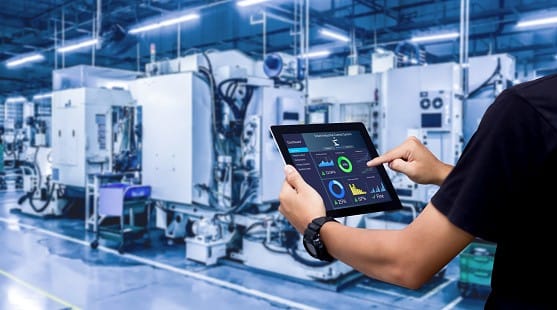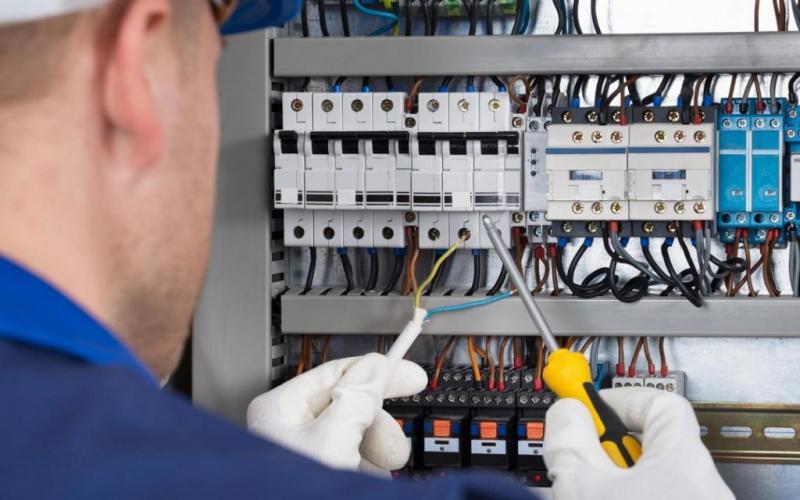Industrial Automation
Industrial automation presents a variety of career opportunities, each with its own specializations and responsibilities. These roles require technical and analytical skills, as well as a deep understanding of the principles of automation, control, and instrumentation.
Some of the top careers in industrial automation include:

Industrial Automation Engineer
An industrial automation engineer is responsible for designing, developing, implementing, and maintaining control and automation systems used in industrial production processes. They also ensure that automation systems comply with industrial safety standards and regulations, implement cybersecurity measures to protect automation systems from threats, and produce detailed documentation of automation systems, including the creation of operational and maintenance manuals.
They are essential in the modernization of factories and production processes, helping the industry to become more efficient, safe and competitive. They analyze and optimize industrial processes to improve efficiency, reduce costs and increase productivity.
They evaluate and implement new technologies that can improve industrial processes.
Shopping
A career as a buyer in industrial automation is dynamic and requires a combination of technical, analytical and interpersonal skills. The professional must understand technical requirements and work closely with automation engineers, technicians and other departments to understand their needs and specifications.
It is essential to have knowledge of industrial automation systems, such as PLCs, sensors, actuators and SCADA systems. Purchases in this area, focused on industrial solutions, involve high-value items, where errors are not tolerated, due to the financial and operational impact.
Systems Integrator
Implement the integration of industrial communication systems, such as fieldbuses (Profibus, Modbus, Ethernet/IP), so that devices can communicate with each other efficiently. Perform rigorous testing on new automation systems to ensure they perform as designed. Supervise the installation and commissioning of automated systems in production facilities.
The integrator acts as an intermediary between equipment manufacturers and industrial customers, ensuring that different components and technologies work together efficiently and harmoniously.
PLC Programmer
The PLC programmer is responsible for developing, testing, and maintaining programs that control automated systems in industrial environments. He or she also integrates the PLC with other automation systems, such as SCADA and DCS, to enable data exchange and centralized process control.
Software development follows process flowcharts, data analysis, and surveys of inputs, outputs, and variables. The programmer also performs upgrades, conversions, and software migrations and creates supervisory systems, always analyzing the relationship between hardware and software, according to the technical specifications.
The role includes testing and debugging PLC programs in simulated environments and in the field, identifying and correcting errors in the code. The goal is to ensure that the system operates as expected before being placed into production.
In addition, the programmer is responsible for producing detailed technical documentation of the programs, describing the functioning of the system, the control logic and creating operation and maintenance manuals.
Automation Technician
Provides technical support to operators, helping to solve operational problems and providing instructions for the correct use of systems and processes, with the help of measurement tools, data analysis and diagnostic software.
Performs preventive and corrective maintenance on automation systems, ensuring the proper functioning of sensors and actuators to reduce downtime.
Accompanies new projects, participating in the construction of electrical panels, network assembly, instrument configuration and preparation of electrical diagrams according to project specifications.
The automation technician is essential to ensure the safe, efficient and continuous operation of automated systems, contributing to the productivity and quality of industrial processes.
Conclusion
A career in industrial automation presents a wide range of opportunities and challenges in a sector undergoing constant technological transformation. For those seeking a dynamic career path, with opportunities for growth and direct influence on the future of the industry, industrial automation is a strategic and promising choice.
With the continuous advancement of technologies such as artificial intelligence, robotics and IoT, the demand for specialists in this area is expanding, ensuring stability and great prospects for professional development.
The field of automation is very extensive, so count on us to discover the best courses on the market.
Legal Notice
All information obtained on this website and related social media pages is for INFORMATIONAL purposes only. The Way Automation is NOT responsible for any damage or loss caused by the execution of actions related or not to the content described here. Always look for a qualified professional, follow the rules and use protective equipment for any work that involves electricity.

